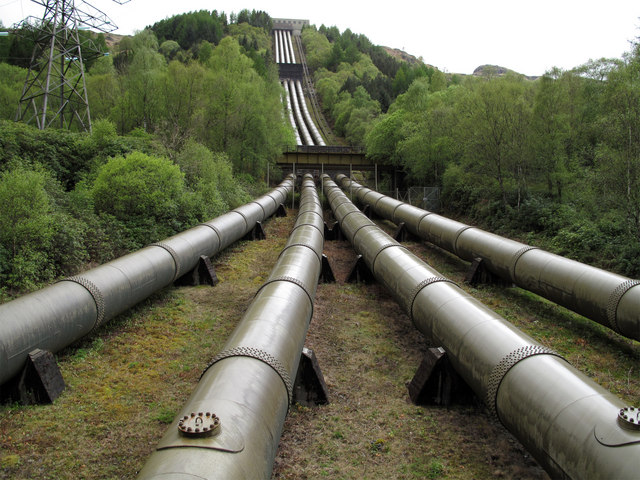Big oil today outlined how it plans to do its bit to help curb warming to two degrees. The announcement comes on the same day the Paris Agreement formally comes into force.
Predictably, there remains a considerable gap between the companies’ commitments and the Paris Agreement’s goals.
Analysts say that to curb warming to two degrees, companies will have to leave around a third of oil reserves in the ground. So is that the revolutionary decision the companies today announced?
No.
Solving Climate With More Gas
Combined, the companies comprising OGCI account for over 20 percent of the world’s oil supply.
At the core of these companies’ climate plan is setting up a $1 billion (£80m) fund to ramp us gas instead of coal, clean up the industry’s own emissions, invest in carbon capture and storage (CCS) technology, and make cars more efficient.
Contrary to media reports leading up to the announcement, none of this money seems to be earmarked for renewables.
One billion dollars might sound like a lot on the face of it but if you break it down, it comes to an average investment of $9.9m (£8m) per company per year for a decade.
And as the Energy and Climate Intelligence Unit points out, these companies have an annual budget of over $300 billion. So it’s just a drop in the bucket really.
And, more notably, none of those strategies require the world to significantly reduce oil consumption.
As the announcement reads, the main focus will be on CCS and reducing methane emissions from gas “in order to maximize the climate benefits of natural gas. The OGCI believes that these are areas where the oil and gas industry has meaningful influence and where its collaborative work can have the greatest impact.”
It’s not the first time the OGCI has made this type of announcement. In advance of the landmark Paris climate conference last year, the same 10 CEOs pledged to “play their part” in tackling climate change.
Those plans included – you guessed it – ramping up gas, making the industry more efficient, investing in CCS, and improving the efficiency of road vehicles.
So it’s perhaps no surprise that today’s announcement was met with scepticism.
Grist said the strategy sounded somewhat like “sweaty, desperate greenwashing”, though it conceded the companies could genuinely be driven by the existential crisis the industry faces as the world decarbonises.
Juliet Philips from investment campaign group ShareAction said: “‘Until initiatives like those announced by the Oil and Gas Climate Initiative are backed up by long-term corporate strategies that are consistent with achieving the Paris Treaty, scepticism of their sincerity is inevitable”.
Charlie Satow from local activist group Divest London said: “The OGCI companies are projected to spend $85 billion into developing new reserves in 2016. Today’s launch is therefore nothing more than a cynical PR exercise, yet more greenwashing tactics designed to blind us to the simple reality. These companies are the problem, not the solution to climate injustice.”
Saving Face
Industry representatives know they’re set for some awkward questions over the next two weeks as thousands of delegates descend on Marrakech for the latest round of climate negotiations. Today’s announcement is an attempt to fire the first shots.
This particular rogues’ gallery has an awful lot to do if it is to persuade people that the industry is serious about climate change, however.
The OGCI is the latest in a long line of friendly sounding groups to front the industry’s effort to appear climate-friendly.
As Oil Change International’s profile of OGCI highlights, the group already has an image problem.
OGCI’s website was set up by former tobacco-lawyer, Daniela Bara, and its PR is handled by Edelman, which has a history of representing climate deniers and coal producers.
And that’s before you even get to the companies OGCI represents.
Shell has previously been prosecuted for ‘greenwashing’ in its advertising. BP has been branded Europe’s “strongest advocate of dirty energy” by NGO Influence Map. And Total remains very keen on drilling for oil in ever harder to reach places.
Today’s announcement is further evidence that these companies continue to fundamentally deny that their business interests conflict with the Paris Agreement’s goals.
If the world is going to curb warming to 2 degrees – or even 1.5 degrees if countries are feeling ambitious – the oil industry is collectively sitting on a massive carbon bubble. Despite the OGCI’s protestations, today’s announcement does not suggest the industry is genuinely planning to change its business model to help the world address climate change.
As Anthony Hobley, CEO of Carbon Tracker, the first financial analysts to promote the concept of unburnable carbon, told DeSmog UK:
“These companies must match rhetoric with real action and stop tinkering around the edges. Big oil is still ignoring the fundamental risk the ‘carbon bubble’ poses and clinging to orthodox growth strategies by cherry-picking BAU (business as usual) industry scenarios that perpetuate a belief in strong fossil fuel demand growth.”
So BP, Shell, Total, and their corporate friends are using the platform provided by the annual climate change conference to continue to push their agenda, which, as always, is to extract, burn, and sell more oil.
Subscribe to our newsletter
Stay up to date with DeSmog news and alerts






